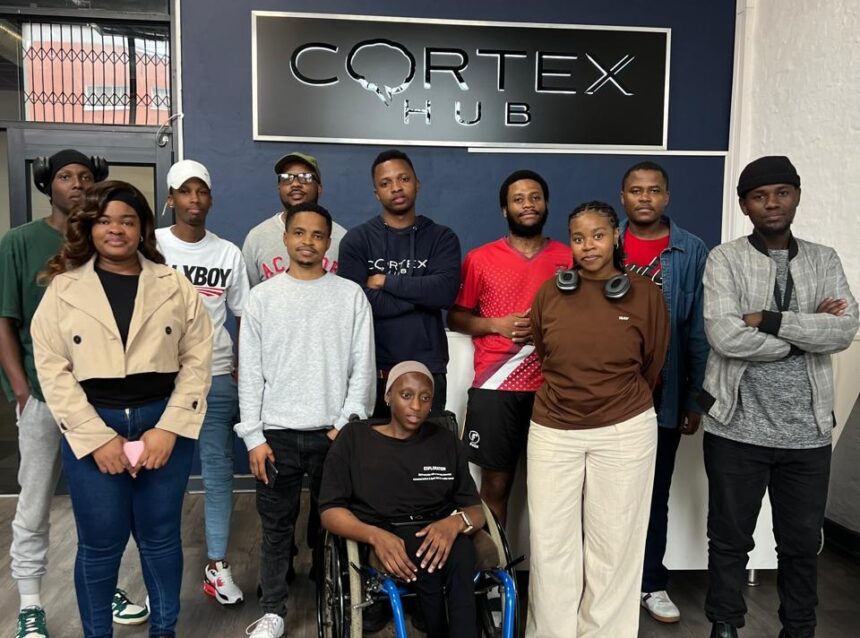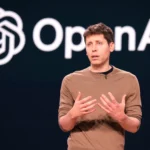Cortex Hub, the South African innovation accelerator turning 15 next year, is embarking on a new initiative: a continent-wide hackathon to build Africa’s first generation of autonomous AI agents.
The program will span 40 cities and offer winners a $10,000 non-equity grant. But for founder and patron Andile Ngcaba, the real prize is sovereignty, ensuring AI reflects Africa’s values, languages, and traditions rather than foreign defaults.
“Agents are everything in AI,” Ngcaba told TechCabal. “They will be how most people interact with AI, whether at work, at home, or when dealing with the government.”
The team says the new hackathon marks a major leap in scale, moving beyond mentorship and startups toward shaping Africa’s role in the global AI economy.
What You Should Know
Founded in 2015 as a nonprofit hub for young Africans to experiment with robotics, engineering, and storytelling, Cortex Hub has grown into one of the continent’s longest-running accelerators.
More than 80 graduates have passed through its labs, hackathons, and green rooms.
Artificial intelligence covers vast territory, from GPUs and data centers to large language models (LLMs). Ngcaba argues the real future lies in AI agents, software assistants that fetch, process, and deliver live information on behalf of users.
Unlike LLMs, which are trained on historical datasets, agents specialize in retrieving real-time information. That ability, powered by model context protocols (MCPs), will define how people engage with AI in the years ahead.
Ngcaba predicts more than 10 billion AI agents could soon roam the internet, booking travel, processing payments, or even renewing passports.
Understanding Cortex Hub Vision
Cortex Hub describes this emerging landscape as the “agentic economy”, a future where AI agents interact not only with humans but also with each other.
According to the Hub, a citizen’s AI assistant could, for example, communicate directly with a government agent to renew a passport, or a business agent could negotiate with a supplier’s agent in real time.
The hackathon will unfold in three phases between late 2024 and 2026:
- Phase 1 (Oct–Nov 2024): Build model context protocols (MCPs).
- Phase 2 (Feb–May 2025): Develop agent communication protocols (ACPs).
- Phase 3 (Aug–Oct 2026): Create fully functional “super agents” tailored to local needs.
Each winning startup will receive a $10,000 non-equity grant. But the larger goal is laying foundations for Africa’s agentic economy.
What This Means
Developing AI agents for city governments is no small task. Most municipalities lack the talent, infrastructure, and funding required. Outdated IT systems, cybersecurity risks, and weak data privacy safeguards add further complications.
Still, Ngcaba believes Africa must tackle these challenges head-on.
“If AI does not understand my culture or my language, I can’t apply it,” he argues. “Africa must build agents that understand who we are, where we come from, and how we live,” he says. “That is how we ensure AI works for us, not the other way around.”
At the heart of the program is the concept of AI sovereignty, Africa’s ability to develop, control, and govern its own artificial intelligence systems rather than rely on foreign platforms. Ngcaba calls this “sovereignty as a service.”
According to industry experts, Cortex Hub’s hackathons could play a pivotal role in bridging Africa’s AI skills gap. Analysts also note that the program arrives at a crucial moment when demand for AI solutions is surging across industries.
Talking Points
It is impressive that Cortex Hub is launching a continent-wide hackathon across 40 African cities, directly addressing the perception that Africa cannot build advanced AI systems.
This ambitious program positions Cortex Hub as more than just an accelerator, it becomes a catalyst for African AI sovereignty, ensuring that innovation reflects local languages, values, and cultural contexts.
At Techparley, we see how initiatives like this could accelerate Africa’s participation in the global AI economy, not just as consumers of foreign platforms but as creators of indigenous solutions tailored to African realities.
As Cortex Hub scales this initiative, there is a strong opportunity for partnerships with African universities, city governments, and private sector players who can provide funding, datasets, and regulatory frameworks.
With the right ecosystem support, Cortex Hub’s hackathon could position Africa as a key player in the future of agentic AI, while empowering young innovators to build systems that serve their own communities first.





